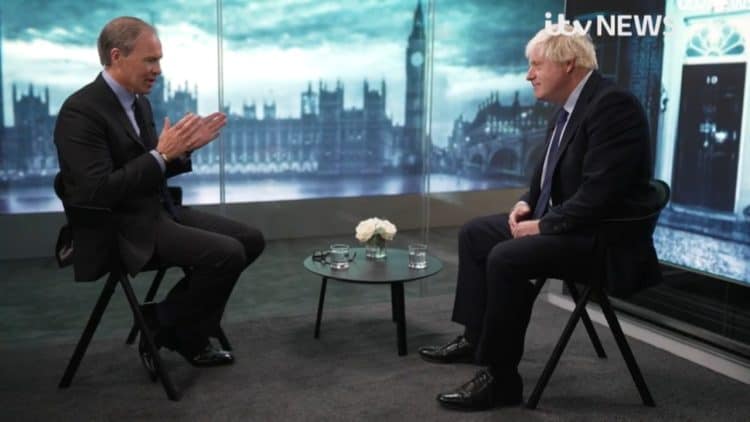Former Prime Minister Boris Johnson has sparked fresh controversy after admitting that his support for Brexit was driven by a desire to “win an argument.” The revelation came during an interview with ITV’s Tom Bradby, where Johnson faced tough questions about his role in the Brexit campaign and the lack of a post-EU plan.
Johnson Back in the Spotlight to Promote Memoirs
Johnson’s latest public appearance comes as he promotes his memoir Unleashed, which has received mixed reviews. The former PM’s comments about Brexit, combined with his defense of past scandals like Partygate, have further fueled criticism.
In his interview with ITV, Johnson dodged accountability for the Brexit aftermath, instead shifting blame to his predecessor, David Cameron. According to Johnson, Cameron’s failure to plan for a Leave vote left the country without direction after the 2016 referendum.
Why Did Boris Johnson Back Brexit?
When asked about his motivations, Johnson gave a surprising response. Rather than detailing a clear strategy for Britain’s future outside the EU, he explained his backing for Brexit was driven largely by a personal desire to win a debate. He cited reasons like “freedom” and the UK’s “potential,” but his main focus seemed to be proving a point in the political argument.
“I wanted to win an argument,” Johnson said, adding that he expected the government to bring forward a detailed plan after the referendum. He criticized Cameron for resigning immediately after the vote, saying it was not “normal” for a leader to leave office under such circumstances.
Johnson Dodges Brexit Blame, Shifts Focus to Partygate
Throughout the interview, Johnson remained defensive on key issues. He showed little regret over his handling of Partygate, claiming the only thing he was sorry for was apologizing in the first place. He also attempted to shift blame onto Sue Gray, who led the investigation into the Downing Street parties during the COVID-19 lockdowns.
Controversial Remarks Fuel Criticism
Johnson’s admission that his support for Brexit was largely about winning an argument has sparked outrage among critics, who view it as a reflection of his self-serving political style. As the UK continues to grapple with the economic and social consequences of Brexit, Johnson’s comments are likely to reignite debate over the true motivations behind the campaign.
His memoir Unleashed has also faced scrutiny, with many questioning the timing of its release and the content within. Johnson’s recent interviews suggest that his return to the public eye may bring more controversy than clarity.
You can watch the clip below:
You may also like: Fiona Bruce challenges Tory MP over Boris Johnson’s freebies scandal during Question Time







